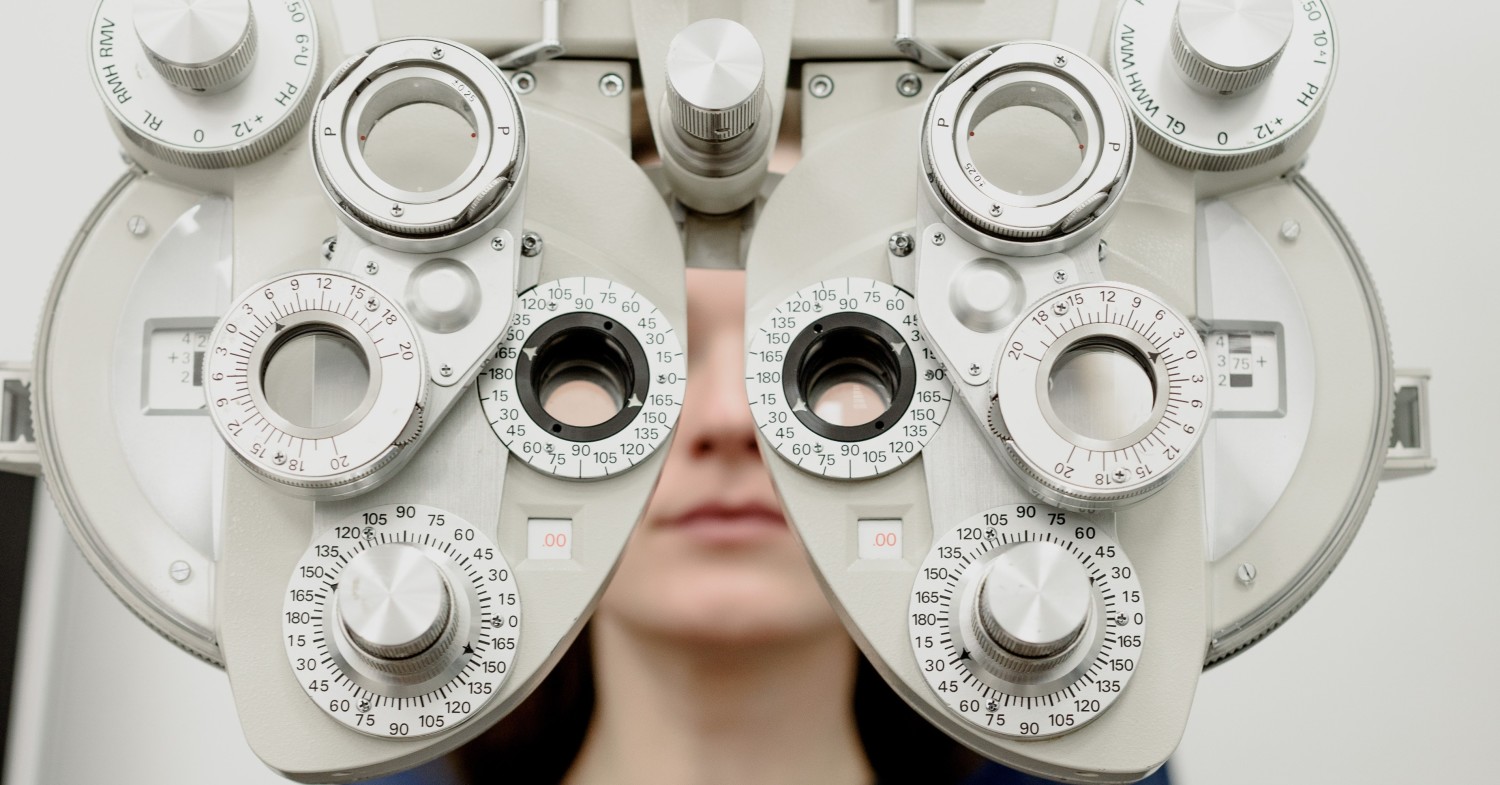
Where Do Epidemiologists Work?
Epidemiologists work in many settings, including hospitals, universities, and federal, [...]

The credentials an occupational therapist (OT) possesses can look like a random assortment of alphabet magnets. An OT’s bona fides might include OTR, MOT BCG, SCEM, and SCLV, indicating that:
Our hypothetical OT might become a CAPS—Certified Aging in Place Specialist—or pursue the SMS certification to become a Seating and Mobility Specialist. Any and all of these additional credentials can help an occupational therapist advance in their careers.
However, only two credentials are strictly necessary. All states require OTs to pass a licensing exam to become OTRs. To qualify for the licensing exam, occupational therapists need to have at least a master’s degree. However, some OTs choose to go above and beyond when it comes to higher education. They either go straight into Doctor of Occupational Therapy (OTD) programs after earning bachelor’s degrees in biology, kinesiology, psychology, sociology, or pre-OT, or go back to school after working in the field because they’re hoping a doctorate will lead to more interesting and more lucrative opportunities in nonclinical and clinical settings.
There are definitely benefits to having OTD after your name when you work in occupational therapy. Still, there’s a lot of confusion surrounding this degree pathway. In this article about occupational therapy doctorate programs, we cover:
The OTD is a practice-oriented professional doctorate designed for clinical occupational therapists. It is the terminal degree in the field of occupational therapy. The University of Pittsburgh website explains that occupational therapy doctorate programs are directed to those who want build careers helping “individuals to function in self-care, home management, school, work, and play/leisure occupations…and establish a lifestyle that is optimally independent, productive, and satisfying to the individual.”
In occupational therapy doctorate programs, students learn advanced clinical practice skills, advanced OT theory, administrative and leadership skills, program development strategies, and pioneering therapeutic techniques. Some of the topics covered in OTD programs overlap with topics covered in the core coursework in occupational therapy master’s programs, but these two academic pathways aren’t identical.
Some people think that the OTD should be the mandatory entry-level degree for licensure in this field; others don’t. The American Occupational Therapy Association, the professional body in charge of the National Board for Certification in Occupational Therapy (NBCOT) exams and the Accreditation Council for Occupational Therapy Education (ACOTE), has been considering the question of whether to make the OTD the entry-level degree for occupational therapists for the last two decades. In 2018, the organization came closer than ever before to mandating that MOT programs transition into occupational therapy doctorate programs by 2027, but shortly after, decided to table the proposed mandate. However, that doesn’t mean that the OTD won’t ultimately become the entry-level degree in this field.
There are two main doctoral degrees occupational therapists can pursue: the OTD, and the PhD in Occupational Therapy. Doctor of Occupational Therapy programs are much more common than PhD programs for occupational therapists, but the latter do exist and are worth mentioning here.
The primary difference between these two programs can be found in their students’ goals. As mentioned above, the OTD is a professional doctorate designed for clinicians and aspiring clinicians. In contrast, most occupational therapy doctorate programs focus on research. A student who wants to become a professor or a university-level researcher will get more out of a PhD program that supports academic fieldwork than an OTD program.
The coursework in PhD programs for OTs typically does not cover the same clinical topics as OTD programs. Instead, classes focus on biostatistics, research design, grant writing, measurement theory, and models of practice—everything an experienced occupational therapist needs to know to transition from clinical practice roles into academia or scientific research.
Clinical occupational therapy doctorate programs come in two varieties: entry-level and post-professional. Entry-level OTD programs (whether full-time or part-time) are designed for students who have earned bachelor’s degrees in fields related to OT but have no professional experience in occupational therapy. There are only about 40 entry-level AOTA-accredited OTD degree programs in the United States. That’s because MOT programs (of which there are more than three times as many) functionally fill the same niche, i.e., to give people the base qualifications necessary to work in occupational therapy.
Entry-level doctorate of occupational therapy programs are a relatively new development. It wasn’t that long ago that most academic programs for occupational therapists at the doctoral level were called post-professional programs, designed for licensed clinical OTs with three or more years of experience. Consequently, the list of post-professional OTD programs recognized by AOTA is quite a bit longer. These degree programs are designed not only to give active clinicians a boost in skills but also to prepare them to step into management-level roles, such as director of an occupational therapy practice
Occupational therapy programs don’t cost more or less than other doctoral-level programs, though they tend to be more expensive than master’s degree programs. The least costly OTD programs cost about $40,000. More often, the total cost of a four-year occupational therapy doctorate runs upwards of $100,000. Unlike PhDs, which may be fully or partially funded, the full cost of an OTD is usually borne by the student, who may or may not take advantage of student loans, aid, scholarships, graduate assistantships, and other sources of outside funding.
The curriculum in occupational therapy doctorate programs varies by type. PhD in Occupational Therapy programs touch on some topics related to clinical OT but devote more credit hours to research methodologies. Entry-level OTD programs cover a broad range of foundational topics focused on occupational therapy as a practice. The entry-level OTD curriculum at the University of Pittsburgh includes courses like:
Compare the courses above with those taken by students in the University of Pittsburgh’s online post-professional Doctor of Clinical Science in Occupational Therapy program, and you’ll see they look quite different. The post-professional curriculum includes courses in:
Enrolling in an occupational therapy doctorate program represents a big commitment. Most post-professional Doctor of Occupational Therapy and PhD in Occupational Therapy degree programs last at least three years and involve anywhere from 35 to 100+ credit hours of work. Entry-level OTD programs can take four years or more to complete. They usually require students to complete more credit hours of work than post-professional programs because the curriculum covers foundational topics.
AOTA guidelines state that students must complete a minimum of 24 weeks of full-time supervised fieldwork in a variety of settings to graduate from an accredited occupational therapy doctoral program. As a result, every accredited occupational therapy doctorate program with a clinical focus has some form of clinical practicum or field experience requirement (sometimes paired with a capstone project). Students in post-professional programs can often complete clinical practicum and field experience requirements at their workplaces, while entry-level OTD students typically complete a series of clinical residency placements with the help of advisors or faculty mentors.
The answer to this question is complicated. Master’s-level OT programs and entry-level OTD programs are often treated as functionally identical by hiring managers in the health professions. Entry-level Doctor of Occupational Therapy salaries are very similar to MOT salaries; it’s not entirely clear what role education plays in occupational therapist salaries. Even AOTA, in its own materials, states outright that “preliminary informal surveys of entry-level doctoral graduates indicate that the doctoral degree does not guarantee advanced salaries.”
An OT with a doctorate may be able to advance into higher-paying positions more quickly than one with an MOT. Still, an OT with a graduate degree may out-earn one with a doctorate if they have more experience or a longer list of certifications on their resume. Can an entry-level occupational therapy doctorate open doors that an MOT can’t? Maybe. A post-professional doctorate, on the other hand, can lead to a change in responsibilities and a bigger paycheck. There are absolutely higher-paying administrative roles and program development jobs that are only open to OTs with post-professional doctorates.
Some people argue that it makes more sense for aspiring OTs to earn the MOT because it’s the quicker route to licensure (i.e., you’ll start earning money more quickly). On the other hand, an OTD program may offer additional research opportunities and clinical experience (i.e., you’ll make more immediately after graduation). There’s no right answer, but it’s worth considering that it’s very likely that the minimum education necessary to work in this field will eventually be a doctorate from an occupational therapy program.
According to US News and World Report, the best occupational therapy programs can be found at the following colleges and universities:
Each of these schools has either an entry-level or post-professional OTD program accredited by ACOTE. Some have both or combined OTD/PhD programs.
Each state can set its own licensing requirements. In nearly all, an occupational therapist can commence clinical practice once they graduate from a master’s-level or doctoral-level occupational therapy program, pass AOTA’s NBCOT certification exam, and successfully apply for state licensure. Those are, however, just the minimum requirements necessary to become an occupational therapist. OTs frequently seek out additional certifications, so they can safely and competently work with certain populations or employ specialty therapies. They also must enroll in continuing education courses each year to meet licensure requirements.
Remember the confusing array of acronyms in the first paragraph of this article? Those are just a few of the particular certifications and endorsements occupational therapists often pursue. An OT can work with patients in stroke recovery without becoming a Certified Stroke Rehabilitation Specialist, or CSRS, but if they love working with those particular patients, it makes sense to specialize. Occupational therapy, as a field, has built continuing education into the licensing requirements. It is often possible to meet these with general competency courses. However, it may make more sense to create a post-OTD plan of professional development that lets you achieve your goals as an OT and fulfill the licensure requirements necessary to continue working with patients.
(Last Updated on February 26, 2024)
Questions or feedback? Email editor@noodle.com

Epidemiologists work in many settings, including hospitals, universities, and federal, [...]

In the occupational therapy field, a doctorate can open doors [...]

Neuro-optometrists use neurology and optometry to understand vision and its [...]

Earning a Doctor of Optometry typically takes four years, although [...]

In addition to having a master's degree, occupational therapists must [...]
Categorized as: Occupational & Behavioral Therapy, Nursing & Healthcare